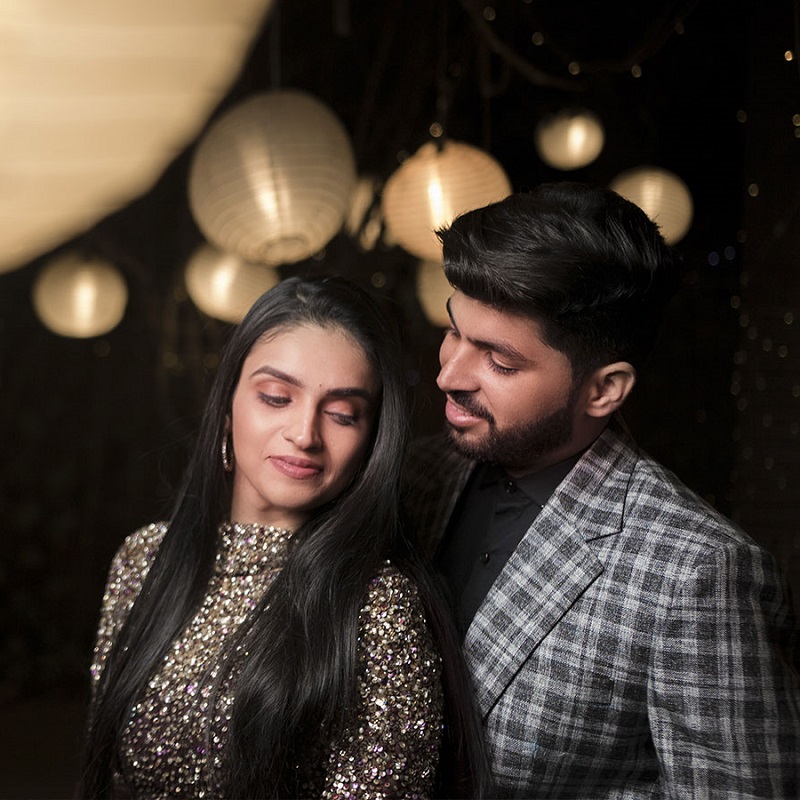
Blog

Full Frame VS Crop Sensor
All the different cameras have a sensor in it which are of two types -
1- Full Frame
2- Crop Sensor
Today we will discuss the Pros & Cons of the same. But first, we should understand what a SENSOR is.
An image sensor or an Imager is the part of the camera that detects and conveys information used to make an image
There 3 main types of Sensors FULL FRAME, CROP SENSOR(APS-C for Canon cameras) & Mirrorless which are still gradually coming out better and upgraded.
FULL FRAME PROS
1) Dynamic Range
Dynamic range refers to an image's complete range of exposure value, from its darkest areas to its lightest.
A Full Frame Camera has a bigger sensor so it captures more light and if by mistake we capture an overexposed or underexposed image due to any circumstance a full-frame file (especially if you shoot in RAW) will give you the latitude to recover blown-out highlights or deep shadows more than a crop sensor can.
2) Low Light Performance
You cant achieve the same low light performance with a crop sensor that you can with a full-frame.
During a low light scenario, Like in our case wedding photography mostly happens at night where a larger sensor performs better than a crop sensor as a Full frame sensor produces a much sharper image with less or no grains.
3) Shallow Depth of Field
While the depth of field is determined by the type of lens you use and the maximum aperture it has.
but the Full-frame sensors allow for a shallower depth of field than the crop sensor.
Portrait shoots, Food photography, and other types of photography that benefit from a blurred background will be best served by a Full frame sensor.
4) Detail & Resolution
A full-frame sensor will help you meet the highest standards for resolution and details if you are a wedding photographer or a commercial photographer who needs to print his images in large sizes they would pick a Full frame camera over a crop sensor camera just because of the reasons listed above.
5) Wider Field of View
Because there’s no crop factor in full-frame sensors, you’re able to get a wider field of view with your lens,.If you shoot landscape photography or anything that needs a wide frame, such as real estate photography or architecture, you’ll probably want a full-frame.
Today we are talking about the Full-frame and Crop Sensor
FULL FRAME CONS
1) Expensive
Full Frame cameras are designed to fulfill the needs of Professional photographers many people who do photography just as a hobby or do it part-time, it is better for them to go for a crop sensor.
Full frame cameras require Full-frame lenses which can be as expensive as the camera body or maybe even more.
2) Size
Most of the Full-frame cameras are bulky and heavy because of the bigger sensor in them.
If you are a person who loves to do travel photography, street photography, and stuff like that carrying that heavy camera can sometimes cause some hassle.
3) Generating Large Files
More pixels mean bigger files. This means you’ll have to invest in the appropriate storage to house these larger files, from faster memory cards to cloud storage or backup drives.
CROP SENSOR PROS
1) More Versatile SizeIf you are new in the field of photography, it is recommended to start on a crop sensor camera as they are less expensive if you don't want to spend a lot of money on a full-frame. And mirrorless crop sensor cameras are so small that if you need something super portable, a crop sensor is versatile.
2) Crop Factor
While the crop factor can be seen as a weakness of these cameras, you can also turn this magnification to your advantage in scenarios where you need to get as close as possible. “The crop sensor’s smaller sensor gives your lenses extra reach. If you shoot wildlife photography or sports photography, you can do pretty well with a crop sensor camera.
CROP SENSOR CONS
1) Lower image quality
A crop sensor can’t fit the same amount of information into a file as a full-frame simply due to its smaller surface area. But in practice, this may only become noticeable in certain situations, such as low-light conditions.
2) Tighter focal length
The crop factor can be a handy hack to amplify your telephoto reach, but the flip side is that shooting wide-angle shots is difficult. Because you’re zoomed in with a crop sensor, it’s really hard to back out, You’d need a very wide-angle lens to get everything around you in a crop sensor, but there’s a lot of distortion with lenses that wide.
WHICH SENSOR IS BETTER FOR YOU?
While full frames will almost always be considered the industry standard for working professionals, there are so many great camera options that the decision between the two often comes down to the individual photographer’s needs and goals. Crop sensor cameras are getting so good that image quality alone isn’t enough of a reason to choose a full-frame over a crop sensor. The most important thing is to assess what you’re taking images of. Many people shoot full-frame who doesn’t need to? A crop sensor is a good place to start because you get great quality at a lower price point.
So you should only choose the best pre wedding photographer in Delhi for this auspicious day. If you need pre wedding photographer in Delhi, contact us.



